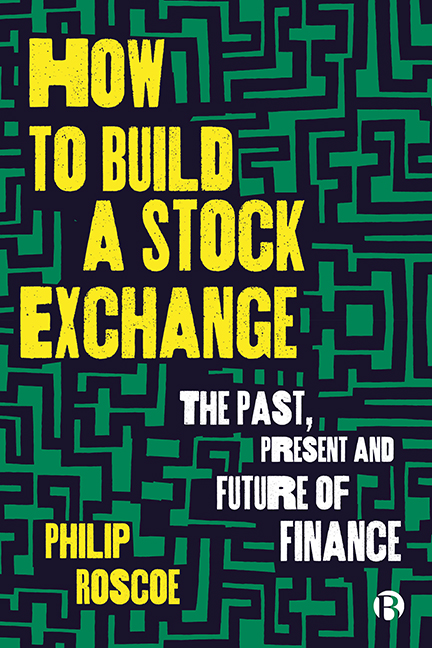10 - Fear and Loathing on Wall Street
Published online by Cambridge University Press: 18 January 2024
Summary
Boom time never lasts. By the spring of 2001 selling had started in earnest. The law of gravity applies to speculative financial investments as much as it does to apples. The fledgling market OFEX gave back most of its profits and found its new infrastructure – a telephone system installed to cope with the volume, for example – coupled with its capital market business structure, an expensive proposition. Oddly, I don’t remember the drama of the dotcom collapse. There was a bad week in April 2001, with heavy selling on Wall Street, but the pundits were sanguine, commenting that it was simply the froth being blown off the market. Diane Coyle, then economics editor at the Independent, described it as a ‘slow puncture’ in the dotcom bubble. This turned out to be a prescient description as short-term losses segued into a short but sharp recession, a period of deep gloom that in the autumn turned to existential dread. On 11 September I was marooned in London by a train strike, and the milling crowds of people, the general sense of panic and the live stream of unutterable images from New York gave a far more end-of-the-world feeling than even the heavy falls on NASDAQ. So, too, did the films of tanks rolling into Iraq and the sense of despair that pervaded all things economic as once-mighty firms – some of the globe’s largest corporations – turned out to be fraudulent (Enron and WorldCom) and negligent (Arthur Andersen). These I remember much more than the falls of April 2000.
During those frenzied months working at Shares Magazine and elsewhere, I developed a fascination with private investors. Professional finance holds that private investors are ‘dumb’. Academic finance researchers are barely less scathing, although they prefer the term ‘noise traders’. Werner De Bondt, one eminent scholar, laments ‘the failure of many people to infer basic investment principles from years of experience’, as if one might magically infer portfolio management theory from a few shaky bets on Tesco or Carillion. There are plenty of studies showing the kind of things they do wrong. They trade too often, incurring excessive trading fees.
- Type
- Chapter
- Information
- How to Build a Stock ExchangeThe Past, Present and Future of Finance, pp. 112 - 121Publisher: Bristol University PressPrint publication year: 2023



